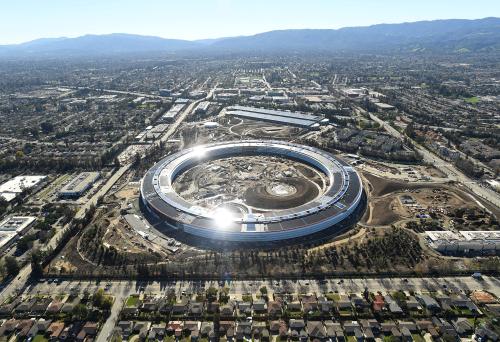The technology industry is reeling from an extraordinary backlash; there are now regular calls to rein in the concentrated power of Silicon Valley, from the regulation of Facebook as a utility to treating Google as a monopoly and unionizing Uber’s drivers.
“There’s blood in the water in Silicon Valley,” wrote Buzzfeed editor, Ben Smith. “The new corporate leviathans that used to be seen as bright new avatars of American innovation are increasingly portrayed as sinister new centers of unaccountable power, a transformation likely to have major consequences for the industry and for American politics.”
To shed light on the motivations of the tech elite, I and my co-authors at Stanford Graduate School of Business, David Broockman and Neil Malhotra, released the findings from a political survey of over 600 tech company founders. Our results revealed a group that was largely supportive of Democrats and redistribution through higher taxation.
That is, they seemed to defy the stereotype of hyper-libertarian big business and the results were received with considerable confusion. “What should we call Silicon Valley’s unique politics?” asked The Atlantic’s Alexis Madrigal.
One interpretation of this seemingly contradictory set of beliefs is that tech leaders are simply opportunistically liberal, opposing only the kinds of policies that most directly hit their bottom line. This critique treats the tech elite as though they have no underlying ideological belief system, but just ad hoc optimize for more money and power.
While this could be true, in the pre-survey investigative conversations we conducted, we interviewed dozens of tech founders who spoke lucidly about their political beliefs in a way that thoughtfully weaved together globalization, taxation, regulation and social justice into a cogent philosophy.
In this post, I’d like to show how these seemingly contradictory beliefs are unified (based on the data).
All of the policies supported by the Valley make a lot more sense in the context of their core belief: a radical optimism in the future.
“I tend to believe that most Silicon Valley people are very much long-term optimists,” LinkedIn founder and Hillary Clinton supporter Reid Hoffman told me. “Could we have a bad 20 years? Absolutely. But if you’re working towards progress, your future will be better than your present.”
Here are a few instances of how this optimism plays out in tech’s unique politics:
Public Charter Schools and Resistance to Labor Unions
Bill Gates has funneled millions of dollars into supporting charter schools, which tend to be highly experimental and often lack teacher unions. Unlike the purely libertarian solution to K-12 education, many charter schools are public.
This stance helps, first and foremost, explain why 74 percent of our tech sample wanted to see labor unions have decreased influence, compared to only 18 percent of donors to the Democratic Party.
One of the signature characteristics of charter schools is their ability to close failing schools and fire bad teachers. Indeed, 82 percent of tech entrepreneurs said that it was too hard to fire workers, a common complaint that charter school advocates have of traditional public schools.
As evidence that this is an ideological belief, and not just a business opportunity, support for charter schools sticks with many technologists as they enter government. One tech entrepreneur-turned-Democratic congressman, Jared Polis, has been an avid supporter of public charter schools.
Differences between parity and equity
While technology founders exhibit unusually strong concern for reducing the “gap between the rich and poor” (21 percent vs. 19 percent of self-identified Democrats), there are different approaches to equality.
Democrats like Bernie Sanders and Elizabeth Warren come close to what the Yale Cultural Cognition Lab describes as “egalitarian”: their principal concern is parity between groups, especially the concentration of power.
Tech entrepreneurs seem more concerned about raising general living standards than increasing parity. Eighty percent of technology entrepreneurs said they would prioritize economic growth over policies that ensured economic equality but inhibited growth.
This view is a common tale of how technology brings economic groups closer together. Cell phones used to just be for the wealthy, now both upper- and middle-class folks walk around with the same iPhone. Self-driving cars will bring chauffeur service to the masses.
Economic growth brings advances in agriculture, medicine and transportation. The more productive society becomes, the theory goes, the more can be given away.
Extreme Globalists
The growing conflict between nationalist conservatives and Silicon Valley is no accident. In some ways Silicon Valley represents the opposite of Trumpism.
“I believe in the elimination of borders and free commerce as a route to peace. Barriers necessarily imply violence,” said Wikipedia founder Jimmy Wales.
The Economist produced a chart of our research showing how tech leaders have the most extreme beliefs for free trade and immigration, compared to the public or Republican donors.
One of the essential missions (and business plans) for the Internet-based companies is to bring together people regardless of distance. The more people come together, the more ideas they share, the more cultures integrate and innovations get adopted. Diversity is essential to change.
Hence, far from being territorial about domestic industries or native cultures, they are actively trying to disrupt them.
Pro-capitalist Democrats
One of the most common responses to our research was that any political actor trying to make a big profit or amass corporate influence couldn’t really be liberal. Democrats are often assumed to be the party protecting people against the throes of the free market.
But, this isn’t necessarily the case. Many in Silicon Valley see government as an essential force in accelerating the pace of innovation. After all, one of the “godfathers” of the Internet, Google executive Vint Cerf, credits a federal (military) research lab with funding an early Internet prototype; that prototype was then expanded through publicly supported universities.
If we define capitalism as simply the accumulation of wealth, then Democrats, who are often more supportive of federal programs in education and basic research, are more likely to be the party of accelerated innovation.
Indeed, this division goes back to the origins of the Democratic Party in the early 19th century, when a splinter group in the 1840s known as “Young America” supported government-backed railroad expansion (the hot new tech at the time).
So, while tech could be opportunistic political manipulators, it seems more likely that they have a clear philosophy that fits uneasily within the Democratic Party – for now.
Google and Facebook are donors to the Brookings Institution. The findings, interpretations, and conclusions posted in this piece are solely those of the author and not influenced by any donation.
The Brookings Institution is committed to quality, independence, and impact.
We are supported by a diverse array of funders. In line with our values and policies, each Brookings publication represents the sole views of its author(s).









Commentary
A deeper look at Silicon Valley’s long-term politics
October 4, 2017